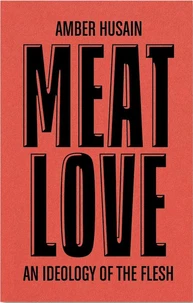If you are what you eat, what does that make you? Virtuous? Cool? Immortal? Or deviant, pitiful, ill? Is it useful to make these judgements? Do they help us improve our lives?In a world where it feels as though the value of your life can be gauged by the goodness in your dinner, it is possible, even easy, to lose the will to live. This became particularly obvious to writer Amber Husain when suddenly, despite almost thirty years of practice, it seemed she had forgotten how to eat.
Medical wisdom tries fix the problem non-eater by teaching them the rules of Good Diet. But what if the problem is precisely the narrowing of life to questions of personal goodness? Suspecting there might be more to her stand-off with food than matters of identity and diet, Husain embarked on an enquiry into the special role of eating in our relationship with the world. Combining a personal account of modern eating-disorder treatments, from the disturbing to the sublime, with a sprawling collective history of eating in hard times, Tell Me How You Eat unearths the astonishing effect of how we feed ourselves and others, not just on who we are, but on how we perceive our own political power.
In doing so, it marks a bold and inspiring confrontation with our very understanding of food.
If you are what you eat, what does that make you? Virtuous? Cool? Immortal? Or deviant, pitiful, ill? Is it useful to make these judgements? Do they help us improve our lives?In a world where it feels as though the value of your life can be gauged by the goodness in your dinner, it is possible, even easy, to lose the will to live. This became particularly obvious to writer Amber Husain when suddenly, despite almost thirty years of practice, it seemed she had forgotten how to eat.
Medical wisdom tries fix the problem non-eater by teaching them the rules of Good Diet. But what if the problem is precisely the narrowing of life to questions of personal goodness? Suspecting there might be more to her stand-off with food than matters of identity and diet, Husain embarked on an enquiry into the special role of eating in our relationship with the world. Combining a personal account of modern eating-disorder treatments, from the disturbing to the sublime, with a sprawling collective history of eating in hard times, Tell Me How You Eat unearths the astonishing effect of how we feed ourselves and others, not just on who we are, but on how we perceive our own political power.
In doing so, it marks a bold and inspiring confrontation with our very understanding of food.

 , qui est-ce ?
, qui est-ce ?